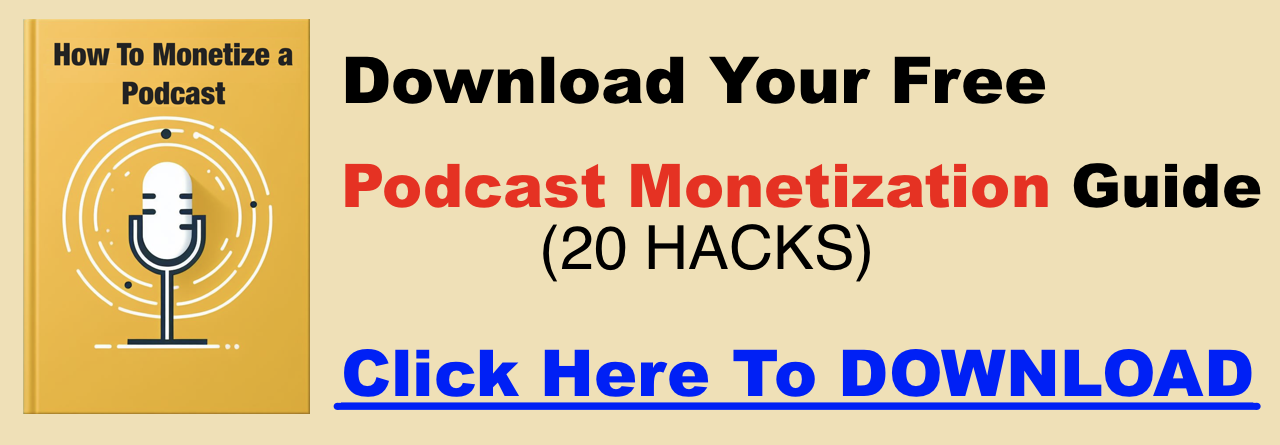Podcast SEO Best Practices
In an era where podcasts reign supreme as a captivating source of information and entertainment, the challenge of getting your show heard grows more intense. With an ever-expanding sea of audio content, podcast SEO (Search Engine Optimization) has become a lifeline for creators striving to reach the right audience. It works by learning how to research your niche, and then using those keywords to be found in search. This can make or break a podcast and can be the difference between having zero listeners and millions. By mastering SEO strategies tailored to podcasts, you can dramatically boost your show’s visibility on search engines and popular podcast platforms, and we’ll show you how.
Understanding Podcast SEO
Podcast SEO is all about optimizing your show’s title, descriptions, show notes, and other elements to improve your ranking in search results. Think of it as making your podcast easily discoverable by potential listeners searching for content relevant to your niche. The lower you rank (the goal is for the top 10), the more likely people find and tune in to your episodes.
Podcast SEO Best Practices
Keyword Research: The Backbone of Podcast SEO
Identifying the right keywords is paramount. Tools like Ahrefs, SEMrush, and Google’s features like Autocomplete and “People Also Ask” are your allies in this quest. Zero in on keywords with decent search volume within your niche but aren’t overly competitive. You can also look for local keywords that might give you a boost too.
Here’s a step-by-step approach to uncover the terms that will bring the right listeners to your show:
- Mind Mapping and Brainstorming:
-
- Begin by jotting down broad topics related to your podcast’s niche. For example, if your podcast is about personal finance, start with terms like “budgeting,” “investing,” “saving money,” etc.
- Expand on these ideas with phrases related to your target audience’s pain points, goals, or interests.
- Keyword Research Tools to the Rescue:
-
- Ahrefs/SEMrush: These powerful tools offer in-depth keyword analysis. See search volume, competition level, and related terms to refine your initial brainstorm list.
- Google Autocomplete/People Also Ask: Google’s suggestions during a search provide invaluable insight into what people are searching for within your niche. These can lead to great long-tail keywords.
- Google Trends: Discover emerging keywords and trending topics before they become mainstream, allowing you to ride the wave of popularity.
- Pinpointing the Golden Keywords
-
- Volume vs. Competition: Ideally, target keywords with a decent search volume (people are looking for them) but lower competition (so you have a better shot of ranking highly).
- Relevance: Ensure the keywords accurately represent your podcast’s specific content and the audience you want to attract.
- Long-tail Keywords: Don’t underestimate longer, more specific phrases (e.g., “personal finance tips for college students”). They are often less competitive and attract highly engaged listeners.
- IF ADVERTISING: Keep this in mind if you’re trying to earn ad revenue; keywords also hold a cost-per-click monetary value, i.e., the cost it takes for an advertiser to pay for their ad to appear during a search. This is also how YouTube’s ads work, and depending on the keywords used in the content, it’ll trigger different ads. So, for instance, a video about coloring books might trigger an ad that only pays a few cents on a click. However, a video showing people how to pick home insurance can pay $30 or more per click. While discussing podcasting here, it’ll depend on the platform(s) you’re utilizing and how they structure their monetization program.
- Putting Your Keywords to Work:
-
- Titles: Your primary keyword should ideally appear in your podcast title and episode titles for maximum impact.
- Descriptions: Sprinkle your main keywords and secondary keywords throughout your podcast and episode descriptions in a way that reads naturally.
- Transcripts & Show Notes: These provide even more opportunities to weave in relevant terms and their variants.
Key Points to Remember
- Think Like Your Listener: What would your ideal audience type into a search bar when looking for content like yours?
- Competitor Analysis: See which keywords your successful competitors rank for and target similar or related terms.
- Don’t Keyword Stuff: Overusing keywords appears unnatural and can hurt your search rankings.
Optimizing Titles & Descriptions: The First Impression
Your podcast’s title and episode descriptions are like digital billboards for your content. Incorporate your target keywords seamlessly into your titles to accurately signal what your episode is about. Similarly, craft compelling descriptions that include relevant keywords while maintaining a clear and engaging style for potential listeners.
Show Notes & Transcripts: SEO Powerhouses
Detailed show notes and full transcripts are your SEO secret weapons. Transcripts expand your reach to those with hearing impairments and give search engines more text to index. Show notes are prime real estate to include additional keywords, relevant links to resources, and calls to action for your audience.
- Search Engines Love Text: Google and other search engines can’t directly “listen” to your podcast’s audio. Transcripts and detailed show notes provide them with a rich text resource to understand the core themes, key points, and relevant topics discussed in your episodes.
- More Content = More Keywords: Transcripts and show notes allow you to naturally incorporate your primary keywords, related long-tail keywords, and semantic variations that you might not have been able to use organically within the spoken episode itself.
- Boosting Relevance Signals: By including references, resources, and links related to your episode’s content within your show notes, you send strong signals to search engines about your topic’s depth and establish your podcast as a credible source.
- Enhanced User Experience:
- Accessibility: Transcripts make your podcast accessible to a wider audience, allow listeners to quickly return to reference something, and are helpful for the deaf and hard-of-hearing community.
- Skimmability: Show notes offer listeners a quick summary and let them easily jump to specific sections.
- Engagement: Include calls to action within your show notes (subscribe, follow on social media, visit your website) to turn search traffic into loyal listeners.
Maximizing Your Show Notes and Transcripts for SEO
- Formatting: Make your show notes readable with clear headings, bullet points, and timestamps if applicable.
- Keyword Placement: Don’t just sprinkle keywords randomly. Weave them into summaries and contextually relevant links.
- External Links: Link to reputable websites, resources, or previous episodes you mention, improving your podcast’s authority.
- Promotion: Share your show notes on social media and on your website, attracting potential listeners and encouraging backlinks.
Tools & Tips
- Transcription Services: Consider services like Podcastle, Descript, or Rev if manual transcription isn’t feasible.
- Show Note Templates: Create a reusable template for consistency and efficiency.
- Repurpose: Share snippets from the transcript as social media posts for added online visibility.
Platform Specific Optimization
Mastering SEO isn’t a one-size-fits-all solution. While fundamental principles apply across the board, platforms like Spotify, Apple Podcasts, YouTube, and Google Podcasts have their algorithms to consider. Research and understand the nuances of each platform’s search function to optimize your presence accordingly.
Backlinks and Social Media for Podcast SEO
Building backlinks and an engaged social media presence can give you a critical advantage in a crowded podcasting space. This isn’t just about driving initial traffic from posts – think of it as a multi-pronged strategy:
- Backlinks: The Currency of Credibility
- High-quality backlinks from other websites signal to search engines that your podcast is a trusted and valuable resource within your niche.
- Guest appearances on relevant podcasts offer a chance to naturally earn backlinks from their website, often on high-authority domains.
- Forge relationships with bloggers and influencers in your field. A well-placed mention with a link can have a powerful effect on your ranking.
- Social Media: More Than Just Shares
- Consistent, engaging posts on social platforms expand your reach and increase discoverability.
- Strategic use of relevant keywords in your posts and profile descriptions can help them appear in search results alongside your primary podcast website.
- Active social engagement builds community, attracts potential guests for your show, and can lead to organic link-building when others share and mention your podcast.
- Leveraging Social Giants for Search Dominance:
- Platforms like YouTube and Twitter have tremendous search engine power. Optimize your profiles and posts using your podcast’s keywords to increase your chances of showing up at the top of relevant search results. This can funnel interested listeners directly to your podcast.
- Best Podcast Cameras in 2026: Creator Picks for Every Budget
- Yamaha MGX Series for Podcasting: The Practical Guide (MGX12 vs MGX16 vs MGX-V)
- What Is Streamyard, This Weird Tool That Helps You Run a Professional Live Show
- What the “Async” Rebrand Actually Means for Your Old Podcast Files
- Why Serious Podcasters Are Moving to 10GbE NAS



